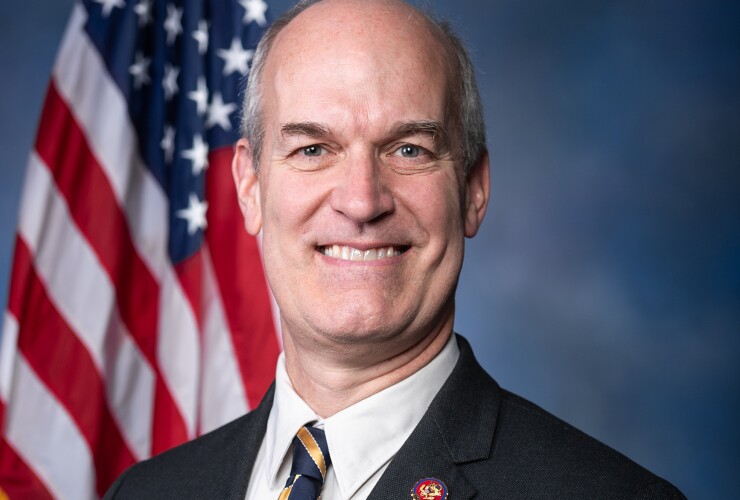As infrastructure funding hangs up in obligation limitations and contract authority rules, state governments and federal lawmakers are already eyeing the possibility of reauthorizing the Bipartisan Infrastructure Law.
The $1.2 trillion BIL, also known as the Infrastructure Investment and Jobs Act, represents the crowning legislative achievement for the Biden Administration. But the inflation unleashed by pandemic aid has been nibbling away at the funds since its passage. Accessing the money can be
"In the first two years of the BIL the U.S. DOT distributed over $2.62 billion to state DOTs, agencies, railroads, airports and ports, to carry on upgrades, and fulfill priorities," said Rep. Rick Larsen D- Wash. "That includes a lot of money in highway funds, $41 billion in transit, approximately $27 billion in rail funds, and nearly $13 billion in airport finds. But we need to start working on the next one."

The comments came during the American Association of State Highway and Transportation Officials Winter Meeting being held in Washington, D.C. this week. BIL money is scheduled to continue until Sept. 30, 2026, as state officials are trying to obligate and spend the money on long-term projects that may take five years to schedule and complete.
This April will mark the halfway mark for the initial span of the bill. "This is not too early to begin thinking about what that next bill might look like, assessing how this bill has worked, its successes and its challenges," said Marc Williams, executive director of the Texas DOT. "It's a really important thing for us to be doing at this stage in the game."
"Having a reauthorization bill on time, is extremely important," said Susan Howard, director of policy and government relations, AASHTO. "We haven't always historically had that because these projects are multi-year and take a lot of planning, folks need to know that once the IIJA ends, the spending authority will continue into the next bill. On time is important, multi years is important."
The need to keep funds flowing was laid out in stark terms by Randy Clark, general manager and CEO of the Washington Metropolitan Area Transit Authority.
"The challenge we have right now is we're broke, big time broke," said Clark. "Our current projected deficit for fiscal year 2025 which starts June 1, was a $750 million-dollar operating deficit. That's a big bogey." The Washington Metro works from a compact arrangement that relies on funds from the District of Columbia, Virginia, Maryland and the federal government to stay afloat.
WMATA recently announced a tentative agreement between the states and the District to boost funding that will be coupled with a 12.5% fare increase to keep the system up and running.
"Without the IIJA we wouldn't have had the formula money in the maintenance account, that we are flexing into operations. It's a horrible way to run an organization," said Clark.
Public transit in several large U.S. cities is still reeling from a drop in ridership caused by the pandemic. The Metro Transit Agency in New York is rolling out congestion pricing while the Chicago Transit Agency is looking at expanding tolls. Investors and bond holders with the transit agencies are banking on
State transportation chiefs are also assailing a somewhat sympathetic Congress for a long-postponed reauthorization of the Federal Aviation Administration, which has taken on extra urgency as failing plane doors crowded into the headlines.
"We very much are in an aviation safety crisis," said Senator Tammy Duckworth D- Ill. "I've used that language before."
Duckworth sits on four Senate committees, and has a long history of support behind the BIL and taking the aviation industry to task.
"We need to take a look at upgrading the infrastructure of our airports," she said. "We need ground radar at all airports, we still have airports that don't have their own radar. That's a problem. And there's money in this FAA reauthorization bill for that."
Reauthorizing the FAA and tapping those infrastructure upgrades has been stuck in the Senate which also
"A lot of our states do aviation in partnership with small airports that do a lot of general aviation and essential air service in underserved areas," said Howard. When it comes to transportation. Doing it on time is better than not, so we're anxious to get that done."





